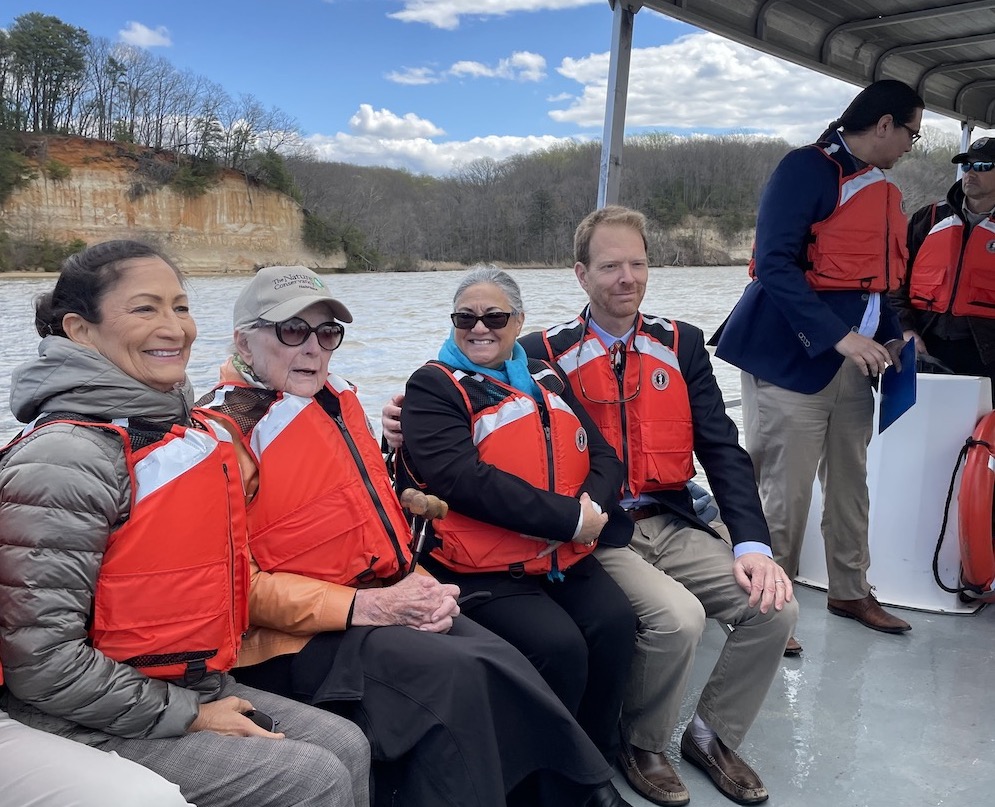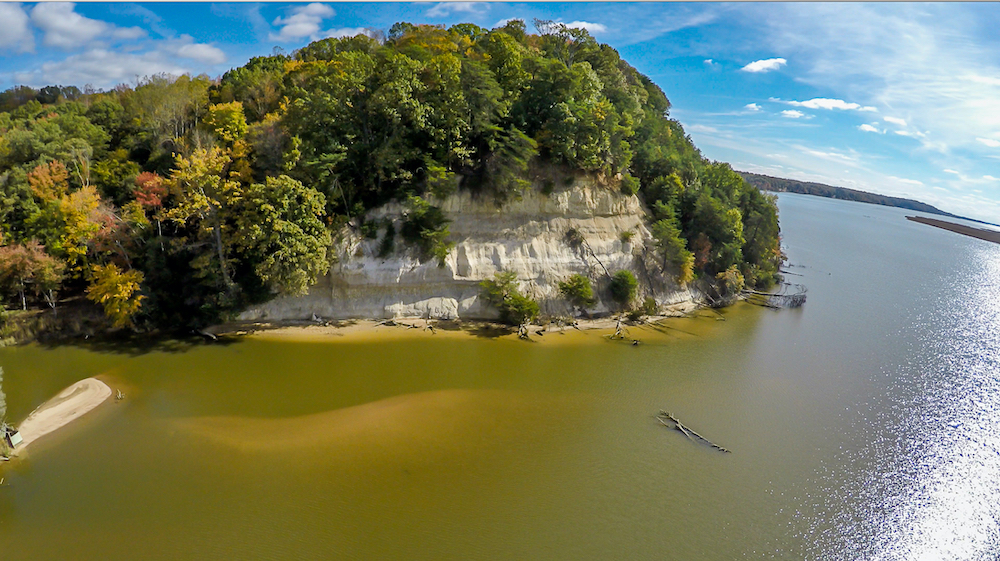
- Details
- By Jenna Kunze
On Friday, the Rappahannock Tribe celebrated a historic win: the reacquisition of 465 acres of their ancestral homeland at Fones Cliffs, a sacred stretch of bluffs on the eastern side of the Rappahannock River in eastern Virginia.
“We have worked for many years to restore this sacred place to the Tribe. With eagles being prayer messengers, this area where they gather has always been a place of natural, cultural and spiritual importance,” Rappahannock Chief Anne Richardson said.
The federally recognized Rappahannock Tribe can trace its history in the area to before the 1600s, when English explorer John Smith arrived on their shores. The tribe lived in at least three villages on the Cliffs—Wecuppom, Matchopick and Pissacoac—before being chased away some 350 years ago.
“My people have lived here since the beginning,” Chief Richardson told an All Things Considered reporter earlier this year.
The land-back movement was made possible by a partnership between the National Fish and Wildlife Foundation, Chesapeake Conservancy, and the tribe itself. Fones Cliffs will be permanently owned by the tribe, and placed in trust with the Bureau of Indian Affairs.
The tribe called the news a huge win for both racial justice and conservation. Fones Cliffs is one of the most important sites for bald eagles on the east coast, as well as rare and threatened plant life.
The land will be publicly accessible and held with a permanent conservation easement conveyed to the U.S. Fish and Wildlife Service, according to a press release from the tribe.
 Fones Cliffs (Photo by Jeffrey Allenby for Chesapeake Conservancy)Secretary of the Interior Deb Haaland joined the tribe on Friday to celebrate their announcement in Chance, Virginia, today.
Fones Cliffs (Photo by Jeffrey Allenby for Chesapeake Conservancy)Secretary of the Interior Deb Haaland joined the tribe on Friday to celebrate their announcement in Chance, Virginia, today.
“The Department is honored to join the Rappahannock Tribe in co-stewardship of this portion of their ancestral homeland,” Haaland said. “This historic reacquisition underscores how tribes, private landowners and other stakeholders all play a central role in this administration’s work to ensure our conservation efforts are locally led and support communities’ health and well-being.”
The tribe plans to build walking trails along the river, and a replica of a 16th-century village where tribal members can educate the public about their history.
More Stories Like This
Northern Cheyenne Push Back Against Trump Administration’s Effort to Alter Little Bighorn HistoryFlorida Man Sentenced for Falsely Selling Imported Jewelry as Pueblo Indian–Made
Navajo Nation Declares State Of Emergency As Winter Storm Threatens Region
The Prediction Market Boom is Posing an Existential Threat to American Indian Gaming
NARF Condemns ICE Actions, Says Native Americans Unlawfully Detained
Help us defend tribal sovereignty.
At Native News Online, our mission is rooted in telling the stories that strengthen sovereignty and uplift Indigenous voices — not just at year’s end, but every single day.
Because of your generosity last year, we were able to keep our reporters on the ground in tribal communities, at national gatherings and in the halls of Congress — covering the issues that matter most to Indian Country: sovereignty, culture, education, health and economic opportunity.
That support sustained us through a tough year in 2025. Now, as we look to the year ahead, we need your help right now to ensure warrior journalism remains strong — reporting that defends tribal sovereignty, amplifies Native truth, and holds power accountable.
 The stakes couldn't be higher. Your support keeps Native voices heard, Native stories told and Native sovereignty defended.
The stakes couldn't be higher. Your support keeps Native voices heard, Native stories told and Native sovereignty defended.
Stand with Warrior Journalism today.
Levi Rickert (Potawatomi), Editor & Publisher


